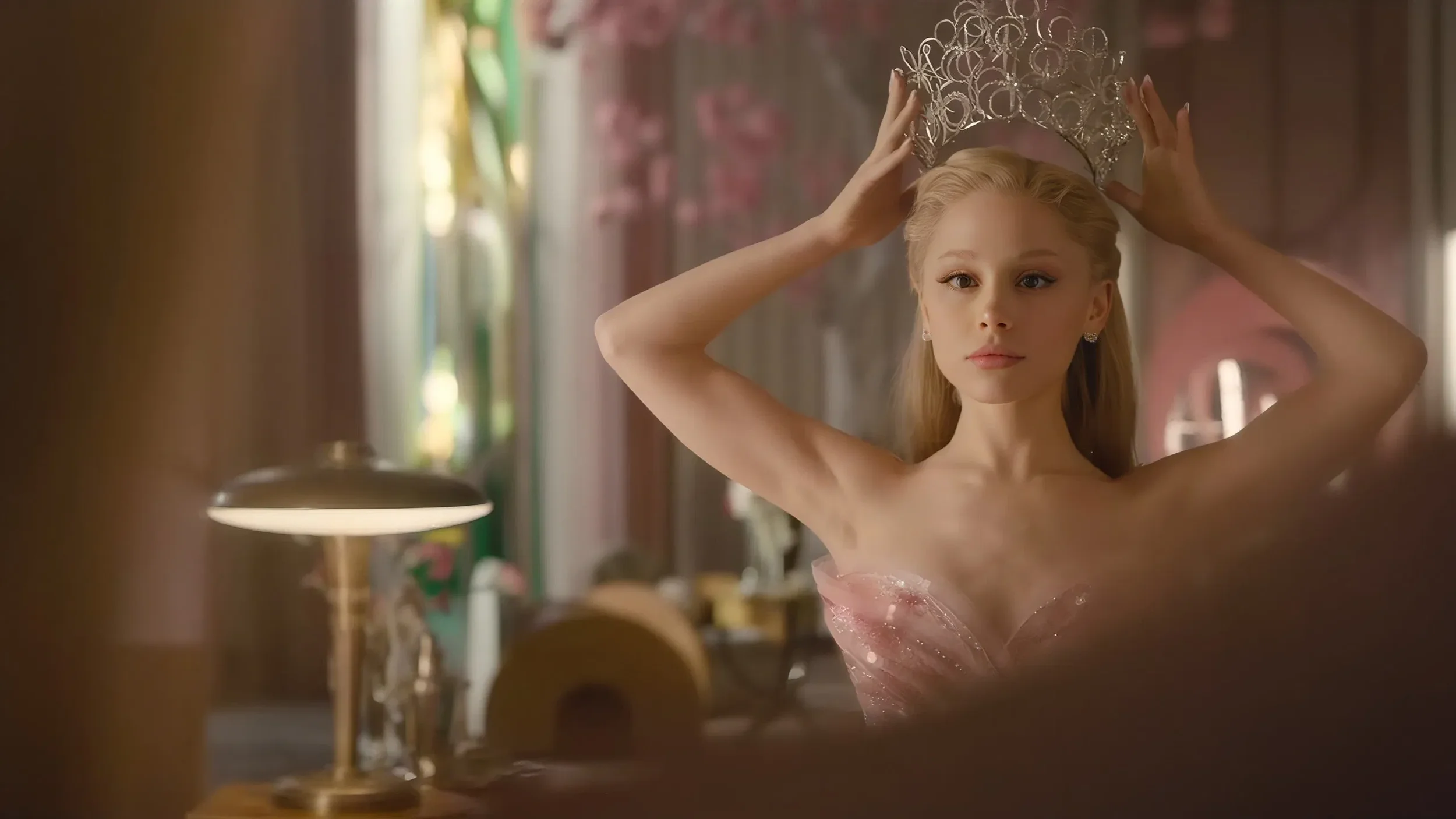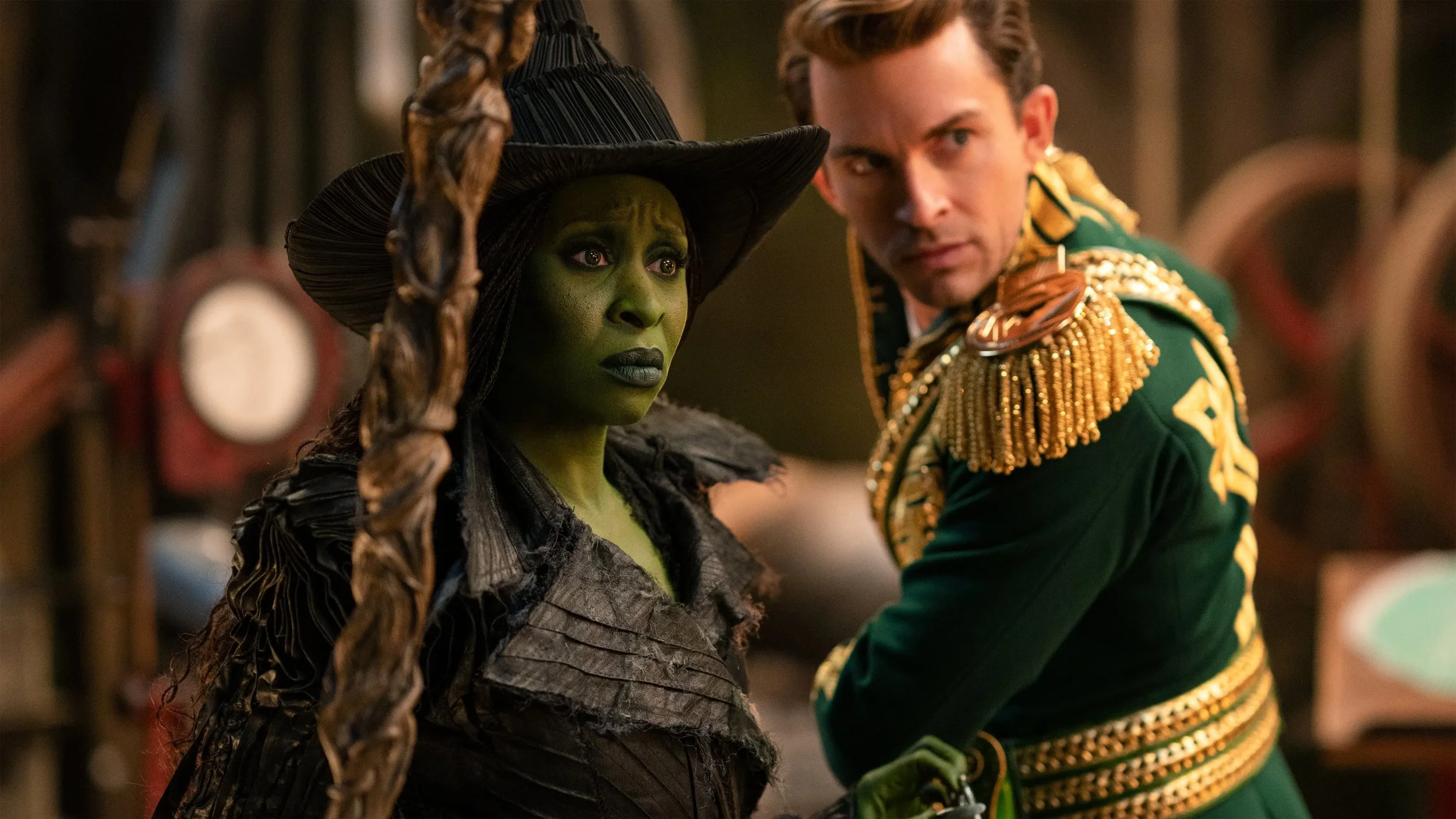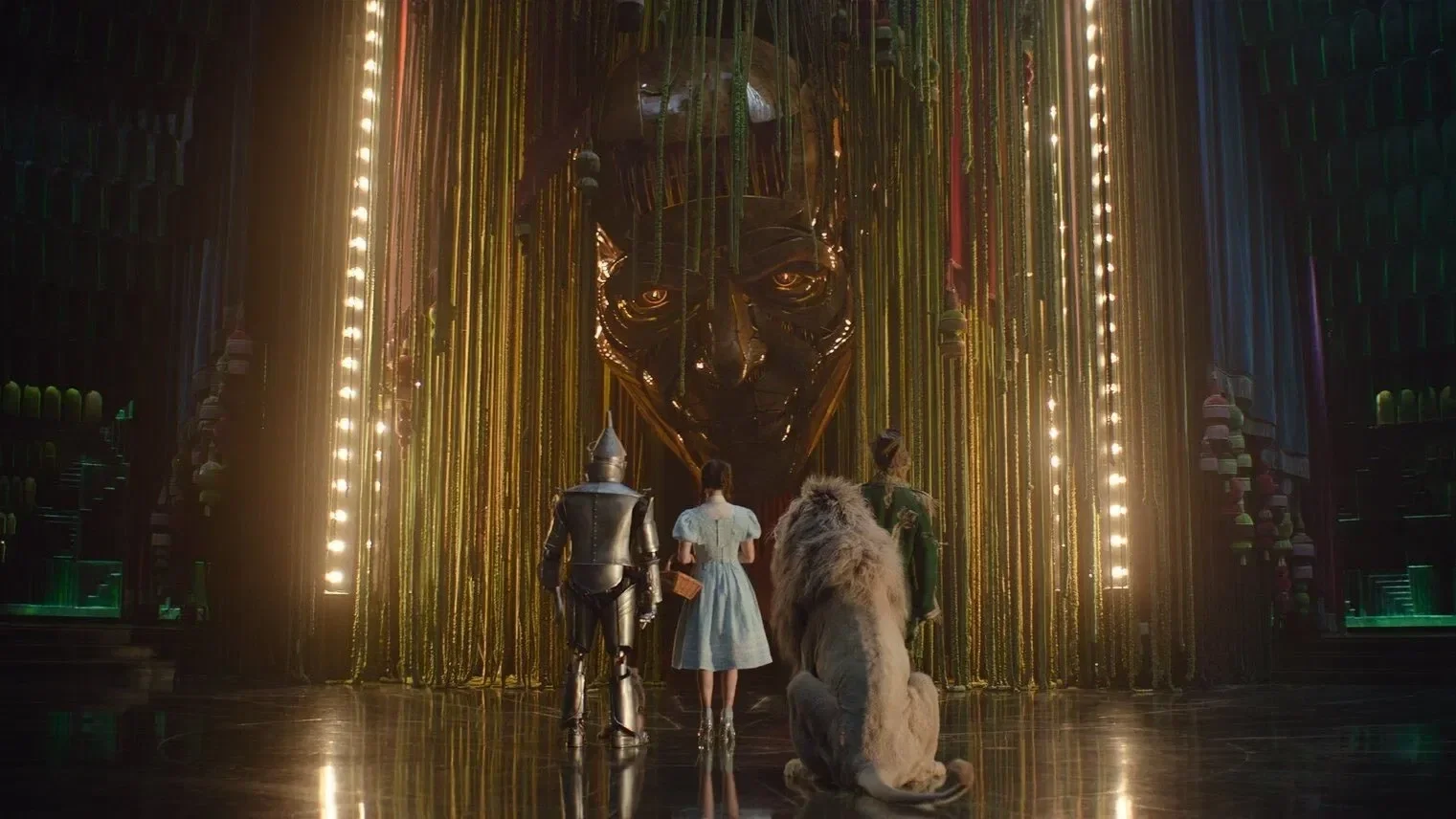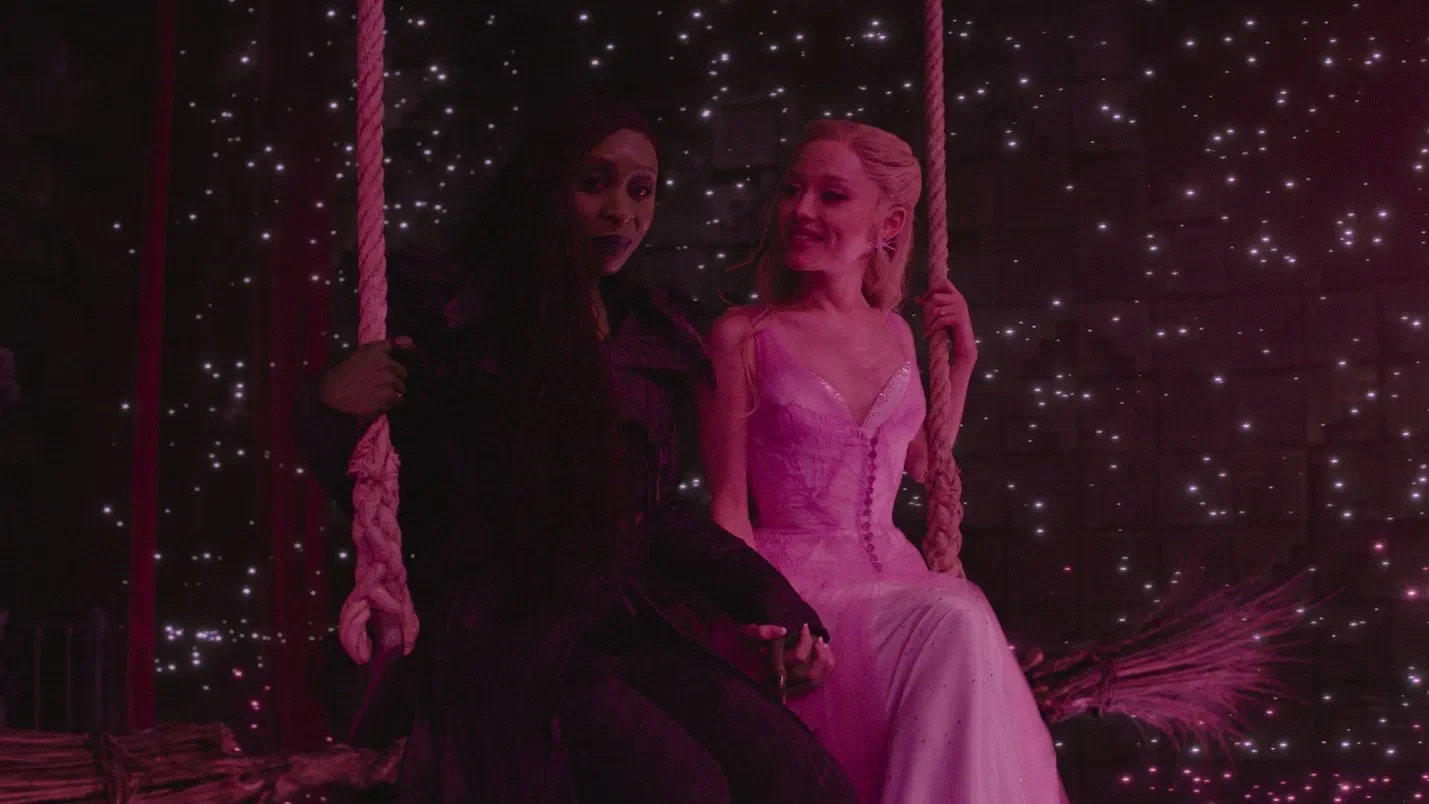Wicked: For Good Confronts Power, Privilege, and the Making of a Witch
After the longest intermission ever, the iconic witches of Oz return for the conclusion to their story in Wicked: For Good. Elphaba (Cynthia Erivo) has become public enemy number one, hiding out while trying to help animals and expose the Wizard for the fraud he is. Meanwhile, Glinda (Ariana Grande) is now the voice of the people, even if that means selling her soul to stay adored. This leads to an undeniably darker and twistier film than the first, packed with new songs, deep revelations, and details fans will enjoy. Spoilers ahead.
Wicked: For Good took everything I loved about the first film and elevated it even higher. There is a beautiful innocence that is shattered as we transition into the story of For Good that finds these two best friends as figureheads on opposite sides of a moral war. The story tackles public image, reputation, deception, disinformation, love, forgiveness, mistakes, and what it really means to put words to action when it comes to good and wicked. This is the type of duology that you can write full dissertations on due to how rich the material is. Is Fiyero’s (Jonathan Bailey) transformation an allegory for Jesus’ cruxification? And what does it say about rooting for the privileged white woman who could use her power to make things better but only chooses to do so in a way that makes her look good? Pun intended.
Despite spending much of this film apart, Elphaba and Glinda’s friendship is surprisingly and nearly unrealistically resilient. It manages to outlast the shallow manipulation of a con wizard, fiancé stealing, and even a sister’s death. They’re better than me. Glinda is given more background, as we see her heart’s desire to become a powerful sorceress from a young age. While we know Elphaba is in the right, it’s easy to see how Glinda can be swayed by the Wizard’s illusion of magic and power. Grande brings so many layers to Glinda through her sincerity and shallowness, but also her potential to truly do good if she is willing to put her ego aside. Eventually, like her new song “The Girl In The Bubble” states, the real world comes in and pops that perfect bubble of naivety she’s hiding behind. You could argue that she is changed “for good” after knowing Elphaba… or that she just reaps the benefits of a broken system and only challenges it when it won’t cost her anything.
Meanwhile, Elphaba becomes the reluctant villain in For Good. There are moments where you question why she is still fighting to save this place that never accepted her, which Erivo explores in her new song “No Place Like Home.” I wish the film had built a stronger bond between Elphaba and the animals she’s working to save. They’ve completely given up hope, so it feels pointless for her to continue her crusade when no one is on her side. But once her sister dies, Elphaba breaks. Erivo’s “No Good Deed” shook me to my very core, I literally started clapping in the theater. It is the most powerful musical moment across both films, vocally and emotionally, and becomes the catalyst for her to save Fiyero and finally give into the identity Oz has forced upon her: the Wicked Witch.
One of my favorite changes from the Broadway show centers around Nessarose (Marissa Bode). In the musical, Elphaba enchants Nessa’s shoes so she can walk, which makes Boq (Ethan Slater) think she no longer needs him. When Nessa’s desperate attempt at a love spell goes wrong, the only way Elphaba can save him is by turning him into a Tin Man. Instead the film reframes this moment so that Elphaba enchants Nessa’s shoes to allow her to float. This connects back to a happier time, the first night Boq called her beautiful and she believed anything was possible. This meaningful update is a win for disability representation.
For Good also takes place as Dorothy lands in Oz. Since we already know her story, director Jon M. Chu smartly uses her as a prop instead of a real character. Her face is intentionally obscured, shown only through shadow or her iconic gingham dress and shoes. It works well, allowing us to stay focused on Glinda and Elphaba’s perspectives. However, the choice is less successful around Dorothy’s friends, who play bigger roles across both films. The Cowardly Lion (Coleman Domingo) is just a glorified cameo and the Scarecrow reveal comes too late. The Tin Man has the best transformation, but, despite the bloated runtime, there is not enough space given to the supporting cast.
The final act of Wicked: For Good brings us back to the beginning, literally returning to the opening moments of “No One Mourns The Wicked.” It’s a brilliant full circle moment. Glinda is telling a cyclical tale that is about to start all over again, a metaphor for how this story will continue being retold across generations.
All in all, Wicked: For Good tackles the idea that being changed “for good” isn’t always positive. Sometimes it’s just permanent. The choices these characters make leave scars that don’t fade and continue to ripple through the world of Oz. From their vocals to their acting choices, Erivo and Grande prove once again that they were born to play these roles. While it’s a long movie, it’s worth every second to get all the little details. Jon M. Chu is a genius and we’re so lucky to have him bringing movie musicals to the screen at this level.
Wicked: For Good is playing in theaters.





